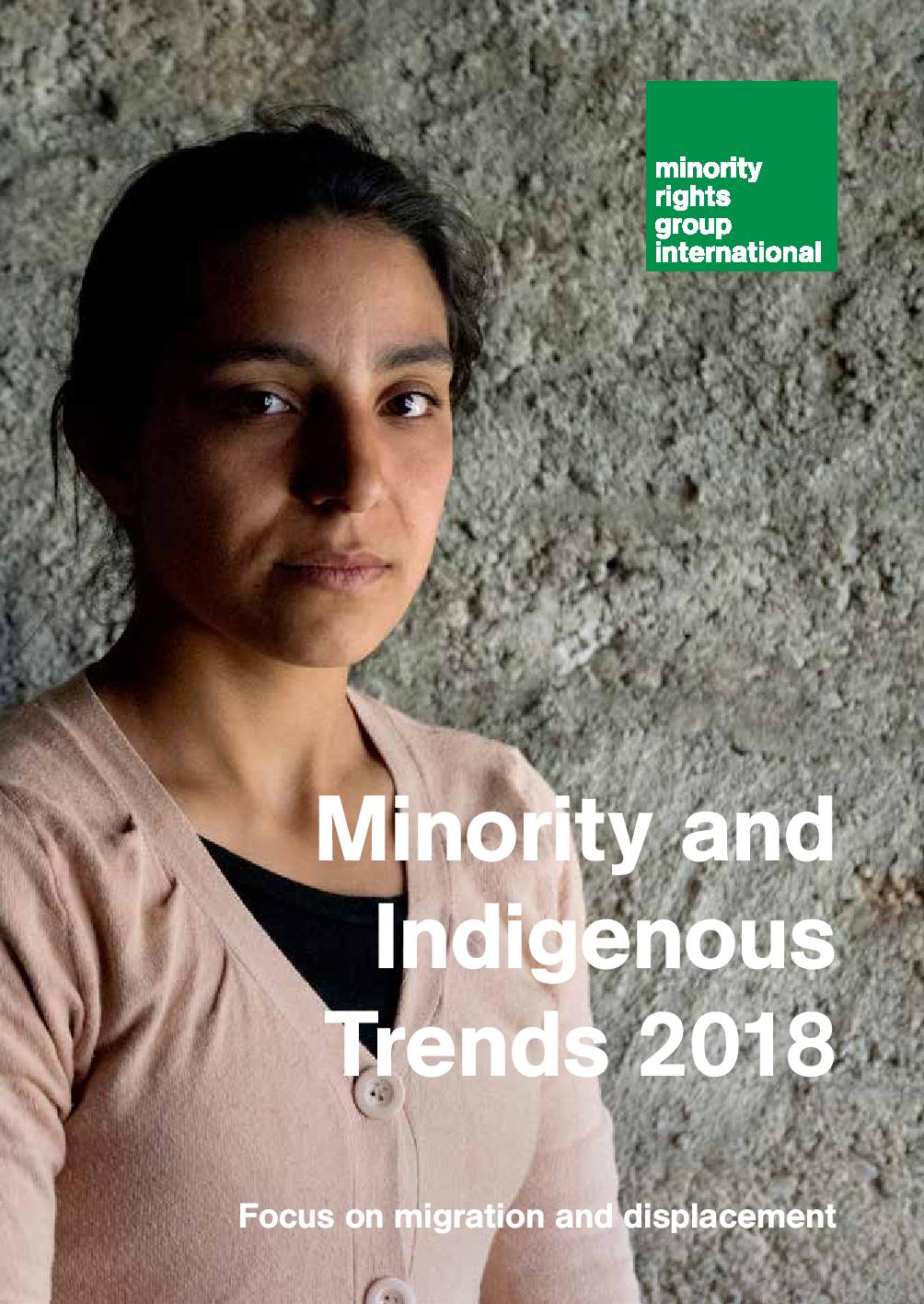
Exclusion at the heart of today’s migration and displacement – new key trends survey
Migration is a key focus of many elections around the world in 2018. However, what is often lost in political debates are the interconnections between minority status, discrimination and the root causes of migration. Minority Rights Group International (MRG) launches today its new annual report, ‘Minority and Indigenous Trends 2018’, focussing this year on the distinct experiences of migrants, refugees and internally displaced belonging to minorities and indigenous peoples, and how their identities shape their journeys.
‘In order to manage migration, firstly one has to understand it,’ says Carl Söderbergh, MRG’s Director of Policy & Communications. ‘Persecution, discrimination and marginalization of minority and indigenous communities often lie at the heart of people’s very difficult decisions to leave their places of origin.’
The new report covers a range of situations where minorities and indigenous peoples find themselves in extremely precarious situations. People are often forced to leave their communities in search of security and some hope for any future for themselves and their families. Below are some examples from the text:
- More than 700,000 of Myanmar’s Rohingya were uprooted to neighbouring Bangladesh over the course of the past year after being targeted by the country’s security forces. The community had already undergone a steady attrition of their rights as citizens in the years before the latest attacks took place.
- By early 2017, as many as 89 per cent of Ethiopians arriving in the key neighbouring country of Yemen were members of the Oromo community, fleeing the government crackdown in their region.
- The roughly 1 million people of Haitian descent in the Dominican Republic have long been stigmatized within the country and subjected to exploitation, lack of documentation and periodic outbreaks of violence. A recent crackdown by the authorities has seen tens of thousands of Haitians, including many with rights to Dominican citizenship, expelled from the country and many others denied entry at the border.
- Roma, one of Europe’s most marginalized minorities, continue to be targeted in many countries with forced evictions – a situation that locks them into a cycle of displacement and human rights violations that affect every aspect of their lives. In France, evictions in 2017 forced over 11,300 Roma – three out of five Roma households – from their homes.
‘Instead of stigmatising refugees and other migrants by talk of walls and other forms of control, governments should ensure that rights are respected so that people do not feel compelled to move in the first place,’ underscored Söderbergh. ‘And if they do seek better futures elsewhere, they should still enjoy basic human rights.’
In their new homes, refugee and migrant communities often remain vulnerable. For instance:
- Some 2.5 million Afghans, including 1.4 million registered refugees, are currently living in Pakistan; many of them have been living there for decades but are still at risk of deportation. Other Afghans, including a large proportion of the persecuted Hazara minority, have also fled since the 1980s to Iran. There, too, they face discrimination, social exclusion and growing pressure, in recent years, to fight alongside pro-Assad forces in Syria or be forcibly returned to Afghanistan.
- Members of religious minorities displaced from Iraq or Syria, for example, may, once they reach Europe, no longer be targeted on account of their faith. However, their status as refugees and ethnic minorities may still result in discrimination, leading to disproportionate levels of unemployment and segregation.
In order to be truly long-lasting, any solutions must encompass respect for minority and indigenous peoples’ rights. For example:
- In the Central African Republic, 80 per cent of the Muslim minority population were forced out of the country since fighting broke out five years ago. The situation becomes more complex, however, as the challenges in ensuring their safety and reintegration extend beyond immediate issues of security to also securing land rights, restitution of property, compensation and reconciliation.
The report includes recommendations to states, international organizations and civil society. Linked to the report’s website are case-studies including photo-stories, as well as updated entries on the situations of minority and indigenous communities in over 100 countries.
***
‘Minority and Indigenous Trends 2018: Focus on Migration and Displacement’ will be available online on 11 September at 6 pm.
The launch event will take place in Krakow, Poland also at 6 pm on 11th September. It will be on Barka Alrina, Bulwar Kurlandzki, vis-à-vis ul. Podgórska 16. The launch will be accompanied by a seminar, ‘Embracing Immigrants in Central and Eastern Europe’. Representatives of civil society and academia will discuss the challenges immigrants and refugees face in the region and possible ways of overcoming them. For further details please see our Facebook event.
Notes to editors
- Download the whole report – English version
- Download the whole report – Polish version
- Download the whole report – Bulgarian version
- Download the whole report – Slovak version
- Minority Rights Group International is the leading international human rights organization working to secure the rights of ethnic, religious and linguistic minorities and indigenous peoples. We work with more than 150 partners in over 50 countries
- For interviews or to order copies of the report please contact:
Anna Alboth, Media Programmes Officer, Minority Rights Group Europe (Budapest, Hungary)
T: +491781426627
E: [email protected]
Twitter: @MinorityRights
Authors and minority representatives from the countries featured in the report, for example:
- British Rohingya Community (‘UK: Rohinga refugees find a safe home in Bradford’)
T: +447552387880
E: [email protected] - Bolaji Balogun (‘Poland: Sub-Saharan Africans and the struggle for acceptance’), doctoral student at Leeds University, currently at UEK; his research focuses on Anti-Black racism in Poland
E: [email protected] - Civic Assistance Committee
Daria Manina, spokesperson of the CAC
E: [email protected]
T: +74956811532 - Semyon Simonov (‘Russia: Migrants from Central Asia struggle with documentation in Krasnodar Krai’)
E: [email protected] (in Russian)
T: +79180016018 (in Russian)